Yes, you can, on Scala 2.8. Note that, for this to work, you have to include the scala-compiler.jar in your classpath. If you invoke your scala program with scala, it will be done automatically (or so it seems in the tests I made).
You can then use it like this:
import scala.tools.nsc.Interpreter._
object TestDebugger {
def main(args: Array[String]) {
0 to 10 foreach { i =>
breakIf(i == 5, DebugParam("i", i))
println(i)
}
}
}
You may pass multiple DebugParam arguments. When the REPL comes up, the value on the right will be bound to a val whose name you provided on the left. For instance, if I change that line like this:
breakIf(i == 5, DebugParam("j", i))
Then the execution will happen like this:
C:\Users\Daniel\Documents\Scala\Programas>scala TestDebugger
0
1
2
3
4
j: Int
scala> j
res0: Int = 5
You continue the execution by typing :quit.
You may also unconditionally drop into REPL by invoking break, which receives a List of DebugParam instead of a vararg. Here's a full example, code and execution:
import scala.tools.nsc.Interpreter._
object TestDebugger {
def main(args: Array[String]) {
0 to 10 foreach { i =>
breakIf(i == 5, DebugParam("j", i))
println(i)
if (i == 7) break(Nil)
}
}
}
And then:
C:\Users\Daniel\Documents\Scala\Programas>scalac TestDebugger.scala
C:\Users\Daniel\Documents\Scala\Programas>scala TestDebugger
0
1
2
3
4
j: Int
scala> j
res0: Int = 5
scala> :quit
5
6
7
scala> j
<console>:5: error: not found: value j
j
^
scala> :quit
8
9
10
C:\Users\Daniel\Documents\Scala\Programas>

